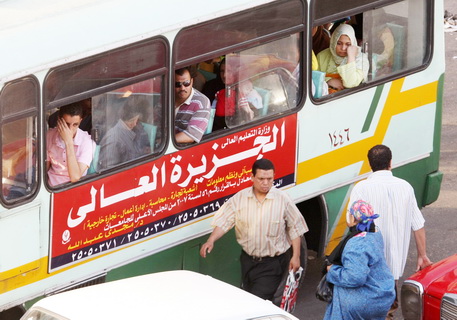Egyptian citizens suffer widespread corruption by the police, whether in the streets, in police stations, or in prisons, according to an official statement by the Socialist Popular Alliance Party (SPAP) Saturday.
The statement added: “Peaceful protestors, footballs fans and political detainees are all victims of the crimes of torture and extrajudicial killings committed by the Egyptian police force.”
The SPAP statement also contends that the police are reclaiming their “worst tactics” by breaching the law and violating human rights, the same tactics that ignited the 25 January Revolution.
There are continuous attempts to protect police personnel through collusion, slow investigations and media gags, according to the statement.
“The people appreciate the duties done by police personnel, which by nature entail putting them at risk. However, in the context of the ‘war on terrorism’, there are abuses that aim to curb the revolutionary spirit, restore fear and bring back the police state,” it said.
As a result of years of exceptional measures granted by the emergency law, the police force now suffers from moral corruption and a lack of professionalism. The police also enjoy immunity as there are no legal deterrents against crimes, the statement added.
The statement argues that in the context of a local and regional war against widespread terrorism, the police force’s tactics fuel and reproduce more terrorism, and increase polarisation.
“The long-needed restructuring of the police institution will not come from inside the institution, but it has to come from outside of it,” the statement concluded.
On the eve of the fourth anniversary of the 25 January Revolution, a peaceful protest arranged by the SPAP was dispersed by birdshot and tear gas. Leftist activist and party member Shaimaa Al-Sabbagh was killed by birdshot.
The Party accused security forces of Al-Sabbagh’s killing while dispersing the protest. According to state-run newspaper Al-Ahram, inspection of footage from security cameras near the incident area identified the killer. The Prosecutor General has yet to reveal the identity of the killer.
Al-Sabbagh’s case sparked local and international condemnation, with symbolic stands and protests organised in her memory taking place inside and outside of Egypt.
Further, on 9 February, at least 22 football fans were killed after police attempted to disperse fans whilst entering the Air Defence Stadium in Cairo. The fans were entering the stadium to watch the game between Zamalek and ENPPI teams.
The Air Defence Stadium killings led to uproar from different political parties, coalitions, opposition groups and institutions. Most of them condemned the excessive use of force by the police, and some demanded the removal of the interior minister.
Most recently, three men died inside Matariya Police Station. Emad Ahmed El-Attar and a lawyer named Kareem Hamdy died last week, with their families accusing the police of torture. The third detainee, Mostafa Ibrahim, was also found dead in the station’s detention room on 22 February.
According to prosecution findings, fellow inmates asserted that Ibrahim was tied by a police officer for eight hours until his death. The death was attributed to a “circulatory collapse” by the Interior Ministry, while autopsy reports show victim Kareem Hamdy was tortured to death.
Prosecutor General Hisham Barakat ordered a media gag on further investigation findings regarding the case of Kareem Hamdy. This is the second time this year the prosecution orders a media gag on a case related to murder; the first was the killing of Shaimaa Al-Sabbagh.

